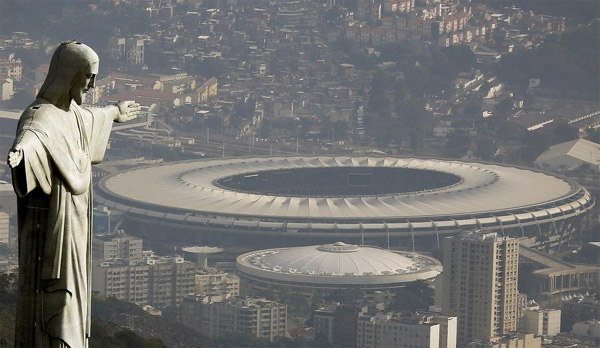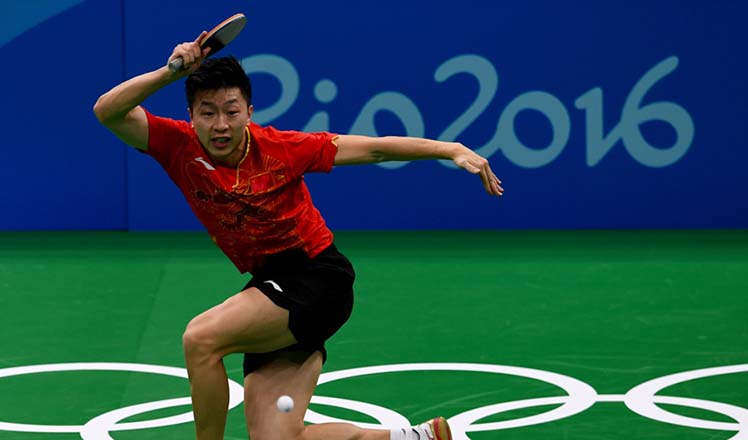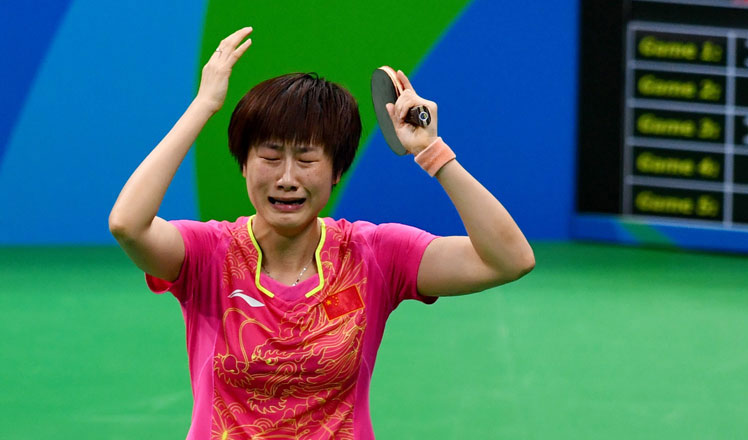The Games' effects on Brazilian economy
Updated: 2016-08-15 08:06
By RENATO BAUMANN(China Daily)
|
||||||||
 |
|
An aerial view shows the Christ the Redeemer statue with the Maracana stadium, where the opening cermony of the Rio 2016 Olympic Games will be held, in Rio de Janeiro, Brazil, July 16, 2016. [Photo/Agencies] |
Brazil has made great efforts as the host for the 2016 Olympic Games. One year after hosting the FIFA World Cup, this sequencing of events was seen as a unique opportunity to promote needed investment in infrastructure (transportation facilities in particular) as well as a window of opportunity to showcase Brazil's beauty and hence attract a good deal of tourists.
These are the main arguments that make countries dispute the honor of hosting big sports events. Nothing new, here.
The two sports galas have demanded a good deal of resources, if less than similar initiatives elsewhere. They have also motivated specific efforts to plan for the whole set of actions that such events require.
As it turns out, both events have contributed to improving in a substantive way the airports of those cities where the World Cup games took place. Even the Olympic Games are not taking place exclusively in Rio de Janeiro: other capital cities of several states are hosting specific events, and they had to prepare the needed infrastructure.
The whole process has not been free of criticism, though. Be it for the sheer size of some stadiums, or specific problems that remain in local transportation, or even the questions on the actual amount of money spent, which could have been invested in alternative social programs. This, of course, is not a Brazilian peculiarity, as these initiatives raise this type of criticism everywhere.
Be it as it may, the organizations of both the World Cup and the Olympic Games have been applauded in most appraisals. At least so far. The opening ceremony of the Olympic Games was a positive surprise, in the sense that it was quite different from the previous editions in other cities and that the organizers had much less resources than originally thought. Yet it was largely welcome.
As per the inheritance of the Olympic Games, it is now quite clear that the changes that took place in Rio de Janeiro in preparation for the World Cup are there to stay and are quite impressive. In the other capital cities the impact was less significant, since the matches there were held using the infrastructure built for the World Cup. As in other opportunities, the main hosting city will show the legacy of the Olympics. Very much like Barcelona and Beijing.
As far as the country's economy is concerned, however, it is not easy to pinpoint the actual gains stemming from the Olympic Games.
During the final stages of preparation for the Games, Brazil was experiencing a peculiar, unprecedented political situation (as it does even as the Games progresses). Also, and as part of the determining factors that have led to the political turmoil, there is a fiscal imbalance and the combination of these two elements inevitably affects expectations of the economic agents. As an outcome, the pace of economic activity is very low.
As it happens, indications are that the political situation might become clearer with the impeachment of President Dilma Rousseff, precisely by the time when the Games come to an end.
It is expected that once the political scenario becomes less blurred there might be a significant increase in investment (domestic and foreign), as well as better chances for the approval, by the National Congress (Brazil's top legislature), of a number of reforms that will help improve the fiscal situation.
As a consequence, the months following the end of the Olympics might be a period of business activities warming up, not exactly as a consequence of the Games, but due to the improvement of the overall political and economic environment. More directly linked to the divulgation of the Games, it is expected that the inflow of tourists will increase in the medium term.
Right now this is the main expectation and the biggest hope.
The author is an economist at the Institute for Applied Economic Research, and professor at Universidade de Brasilia, Brazil.
- Nepal's newly elected PM takes oath
- Texas gun law worries incoming students
- China vows to deepen economic, trade cooperation with ASEAN
- Fire guts Emirates jet after hard landing; 1 firefighter dies
- Egypt's Nobel-laureate scientist dies of illness in US
- THAAD muscle flexing unmasks anxiety over declining hegemony
 Phelps writes new page with four wins in same event
Phelps writes new page with four wins in same event
 Ma Long wins Chinese derby to edge defending champion
Ma Long wins Chinese derby to edge defending champion
 Yingjing County's hand-crafted 'black pottery'
Yingjing County's hand-crafted 'black pottery'
 Ten photos from around China: Aug 5 – 11
Ten photos from around China: Aug 5 – 11
 Inheritor of Songshan wood carving in C China
Inheritor of Songshan wood carving in C China
 "Born in China": Wild and fun
"Born in China": Wild and fun
 Top 10 foreign destinations for Chinese tourists
Top 10 foreign destinations for Chinese tourists
 Ding Ning wins table tennis gold in Rio
Ding Ning wins table tennis gold in Rio
Most Viewed
Editor's Picks

|

|

|

|

|

|
Today's Top News
Phelps puts spotlight on cupping
US launches airstrikes against IS targets in Libya's Sirte
Ministry slams US-Korean THAAD deployment
Two police officers shot at protest in Dallas
Abe's blame game reveals his policies failing to get results
Ending wildlife trafficking must be policy priority in Asia
Effects of supply-side reform take time to be seen
Chinese State Councilor Yang Jiechi to meet Kerry
US Weekly

|

|









